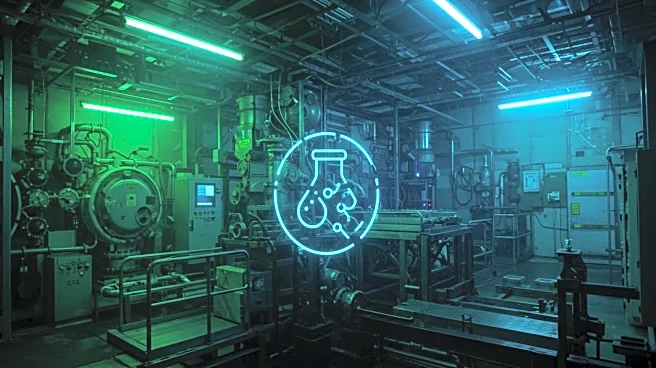What is the story about?
What's Happening?
The U.S. is exploring the possibility of recycling nuclear waste to produce tritium, a rare hydrogen isotope needed for nuclear fusion reactors. Currently, the U.S. faces a shortage of tritium, which is essential for the fusion process that powers stars and promises minimal radioactive waste. Tritium is commercially valued at approximately $15 million per pound, but the U.S. lacks domestic production capabilities. The initiative aims to leverage existing nuclear waste to address this shortage, potentially reducing reliance on foreign sources.
Why It's Important?
This development could significantly impact the U.S. energy sector by advancing nuclear fusion technology, which offers a cleaner and more sustainable energy source compared to traditional nuclear fission. By producing tritium domestically, the U.S. could enhance its energy independence and reduce costs associated with importing this critical material. The initiative also aligns with broader efforts to manage nuclear waste more effectively, potentially transforming a liability into a valuable resource.
What's Next?
Further research and development are needed to establish viable methods for extracting tritium from nuclear waste. Collaboration between government agencies, research institutions, and industry stakeholders will be crucial in advancing this technology. Successful implementation could lead to increased investment in fusion research and development, positioning the U.S. as a leader in next-generation energy solutions.

















